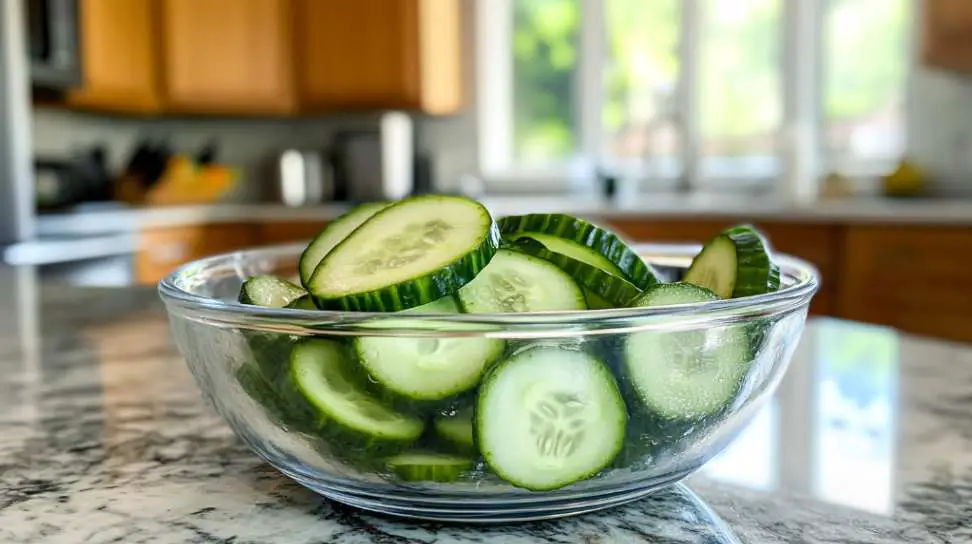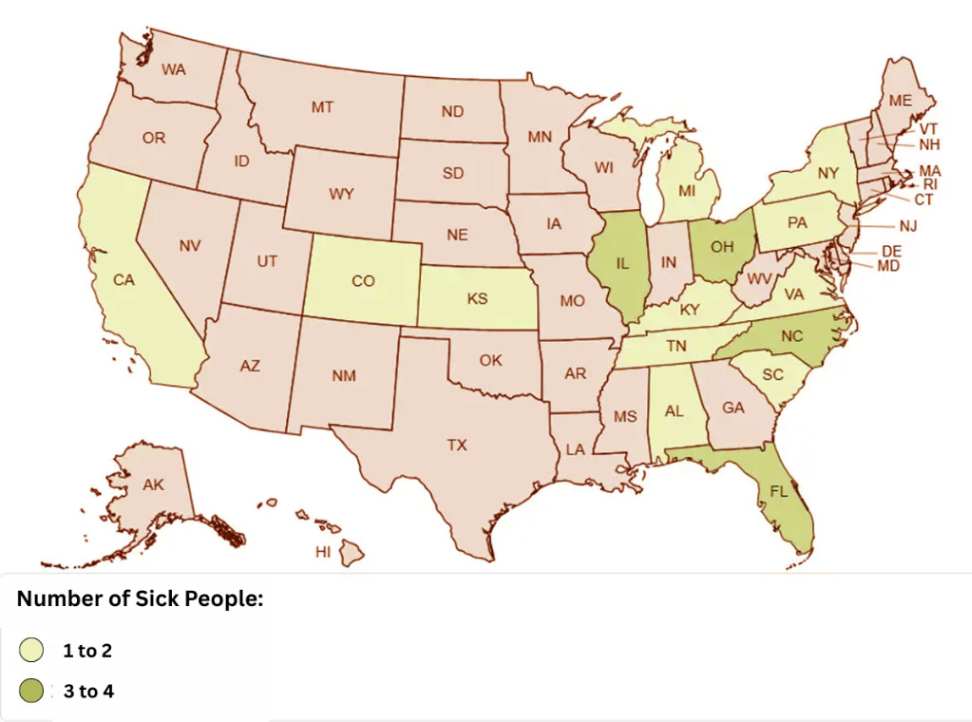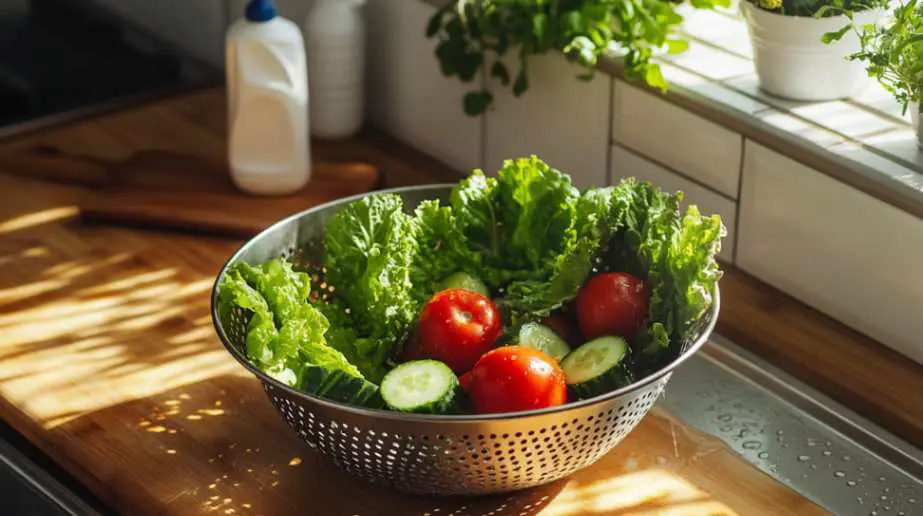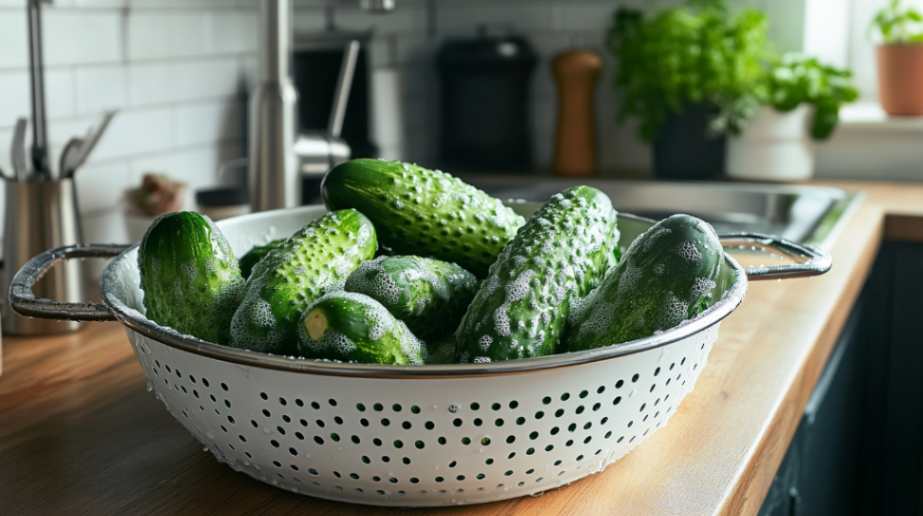In May 2025, a cucumber recall was issued across multiple states in the U.S. due to a salmonella outbreak that has raised serious concerns about consumer safety. The FDA and CDC identified the presence of Salmonella Montevideo and Salmonella Africana in cucumbers grown by Bedner Growers and distributed by Fresh Start Produce Sales, prompting a swift response to mitigate the spread of foodborne illness.
This recall highlights the critical role of public agencies in maintaining food safety and underscores the importance of rapid action when contaminated cucumbers or other contaminated food enters the supply chain. As the multistate outbreak continues to be investigated, officials urge consumers to stay informed and take appropriate precautions to protect their health.
Table of Contents
Background: The Salmonella Outbreak
The 2025 salmonella outbreak linked to cucumbers has been traced to two rare bacterial strains: Salmonella Montevideo and Salmonella Africana. These pathogens were identified through an investigation into a multistate outbreak that left dozens ill across several states. According to the CDC, the contaminated produce was responsible for a series of illnesses with consistent infection symptoms, triggering widespread concern over the presence of contaminated food in the supply chain.
Contaminated cucumbers were identified as the source, raising alarms about broader issues of produce safety and foodborne illness. Food scientists involved in the investigation analyzed the outbreak strain through lab testing, which confirmed genetic links between cucumber samples and bacterial strains found in patient specimens.
This outbreak has brought renewed attention to the importance of rigorous safety practices across all stages of food production, especially for vegetables consumed raw or lightly processed.

Key Organizations and Source
The primary source of the contaminated cucumbers has been identified as Bedner Growers, located in Boynton Beach, Florida. As the original producer, Bedner Growers supplied cucumbers now confirmed to be contaminated with strains of Salmonella Montevideo and Salmonella Africana. These cucumbers were then distributed nationally by Fresh Start Produce Sales, a company with broad ties to product distribution networks spanning numerous states.
The response to this produce recall has been led by the FDA and the CDC, working in collaboration with local health units to trace the contaminated product through its distribution path. Both agencies have emphasized the importance of traceability in modern food systems, noting that rapid identification of the source was crucial in issuing recall instructions and limiting further spread of the foodborne illness.
This incident highlights how coordinated oversight between growers, distributors, and regulators is essential in protecting public health and maintaining food safety standards.
Affected States and Distribution
The cucumber recall initiated in May 2025 has impacted at least 15 states. The affected states include:
- Alabama
- California
- Colorado
- Florida
- Illinois
- Kansas
- Kentucky
- Michigan
- North Carolina
- New York
- Ohio
- Pennsylvania
- South Carolina
- Tennessee
- Virginia
According to the CDC, reported cases have emerged in multiple regions, signaling a wide-reaching multistate outbreak.

Distribution centers, retailers, wholesalers, and restaurants all played roles in spreading the contaminated product through normal supply channels. Investigations reveal that cucumbers grown by Bedner Growers were shipped through regional distribution centers managed by Fresh Start Produce Sales, making their way into both national chains and local stores.
Specific exposure sites include Farm Fresh Market locations in Boynton Beach, Delray Beach, and West Palm Beach, as well as various Kentucky grocery stores. Officials have warned that consumers in these areas should be particularly cautious about any recent cucumber consumption.
Recall Details
The produce recall issued in response to the 2025 salmonella outbreak covers specific types of cucumbers distributed between April 29 and May 19, 2025. The recalled items include various sizes and grades categorized under the labels “supers,” “selects,” and “plains.” These labels were used across distribution batches originating from Bedner Growers and funneled through Fresh Start Produce Sales to retailers and food service businesses.
Consumers are urged to identify the contaminated product by checking packaging or store purchase records from the affected time frame. While most of the recalled cucumbers were distributed in bulk to stores and restaurants, others were shipped to distribution centers serving multiple states, expanding the reach of potential exposure.
The FDA recommends that anyone in possession of cucumbers labeled under the affected distribution period should follow recall instructions: discard the product immediately and avoid any further cucumber consumption. Those uncertain about the product’s origin should err on the side of caution and dispose of it as a food safety measure.
Symptoms and Health Risks
Salmonella infections can lead to a range of health issues, particularly among vulnerable populations such as young children, the elderly, and individuals with weakened immune systems. The most common symptoms of salmonella include:
- Diarrhea
- Stomach cramps
- Vomiting
- Nausea
- Dehydration
These infection symptoms typically begin 6 to 72 hours after exposure to the contaminated food and can last from several days to a week. While most healthy individuals recover without treatment, some cases can progress to severe infections requiring hospitalization.
Public health authorities are urging anyone who recently consumed cucumbers and begins to experience these symptoms to seek medical advice. Recognizing early warning signs can prevent complications and contribute to controlling the spread of the foodborne illness linked to contaminated cucumbers.

Cucumber Consumption Advisory
Following the recent produce recall, health officials are warning consumers about the potential risks associated with cucumber consumption between April 29 and May 19, 2025. Cucumbers from this period may be linked to the salmonella outbreak, with confirmed contamination by Salmonella Montevideo and Salmonella Africana.
Anyone who purchased or consumed cucumbers during this timeframe is advised to check their source. If there’s any uncertainty about the origin of the cucumbers, it is safest to discard them. The FDA and CDC strongly recommend following recall instructions to avoid exposure to contaminated food.
Consumers are also urged to dispose of any cucumbers stored at home and clean storage areas thoroughly to prevent further risk of foodborne illness. The public is reminded that consumer safety must remain a priority, especially during a multistate outbreak.
Consumer and Retail Guidance
In response to the ongoing produce recall, both consumers and retailers are advised to take immediate action to minimize exposure to the contaminated product and reduce the risk of foodborne illness.
For Consumers:
- Discard any cucumbers purchased between April 29 and May 19, 2025, especially those without clear labeling.
- Sanitize surfaces that may have come into contact with the cucumbers, including cutting boards, countertops, and refrigerator shelves.
- Monitor for infection symptoms such as diarrhea, vomiting, and stomach cramps, and seek medical help if symptoms develop.
For Retailers and Restaurants:
- Remove affected inventory from shelves and food prep areas immediately.
- Notify customers of the recall through in-store signage and online alerts.
- Clean and sanitize all storage, display, and food preparation areas where the contaminated cucumbers may have been handled.
Public health officials stress the importance of adhering strictly to these recall instructions to prevent further spread of the salmonella outbreak and protect consumer safety across all points of the supply chain.
Prevention and Food Safety Best Practices
Preventing future outbreaks like the 2025 salmonella outbreak starts with strong safe food handling and produce safety practices at both the consumer and commercial levels. Following a few basic guidelines can significantly reduce the risk of exposure to foodborne illness caused by contaminated food such as cucumbers and other fresh vegetables.
Recommended Food Safety Tips:
- Rinse fruits and vegetables thoroughly under running water before eating, cutting, or cooking.
- Keep raw foods separate to avoid cross-contamination: never store or prepare raw meat, raw poultry, raw seafood, or undercooked eggs alongside fresh produce.
- Regularly sanitize surfaces such as cutting boards, knives, and countertops after food prep.
- Refrigerate produce promptly and avoid consuming items past their freshness window.
These practices are especially critical during produce recalls and potential contamination events. The FDA, CDC, and food safety advocates continue to educate the public on improving hygiene and vigilance around cucumber consumption and other raw produce.

Traceability and Oversight
The 2025 cucumber recall has reignited conversations around the need for robust traceability in the fresh produce supply chain. The ability to quickly track a contaminated product from grower to consumer is essential in minimizing public exposure during a multistate outbreak.
Agencies like the FDA and CDC have emphasized the importance of improving product distribution oversight. Enhanced tracking systems at regional distribution centers and stronger regulatory frameworks help identify distribution pathways involving retailers, wholesalers, and restaurants. This infrastructure allows for faster recall execution and more precise targeting of affected states.
As part of this response, food safety protocols are being re-evaluated across farms, packers, and distributors. Growers such as Bedner Growers and distribution companies like Fresh Start Produce Sales are expected to cooperate with new compliance guidelines to reinforce consumer safety and prevent future instances of foodborne illness.
Conclusion
The 2025 cucumber recall tied to a dangerous salmonella outbreak serves as a critical reminder of the importance of maintaining vigilance in food safety. With pathogens like Salmonella Montevideo and Salmonella Africana causing foodborne illness across multiple states, prompt action by the FDA, CDC, and other public health agencies helped mitigate further spread through effective recall instructions and consumer alerts.
This incident underscores the necessity of strong oversight, better traceability, and consistent safe food handling practices both at home and in commercial environments. As the investigation continues, consumers are urged to remain cautious about cucumber consumption, especially produce acquired during the affected distribution period.
Ultimately, ensuring consumer safety during a multistate outbreak requires a joint effort between government agencies, growers like Bedner Growers, distributors such as Fresh Start Produce Sales, and the general public. With heightened awareness and preventive measures, we can all contribute to safer food systems and protect public health.


